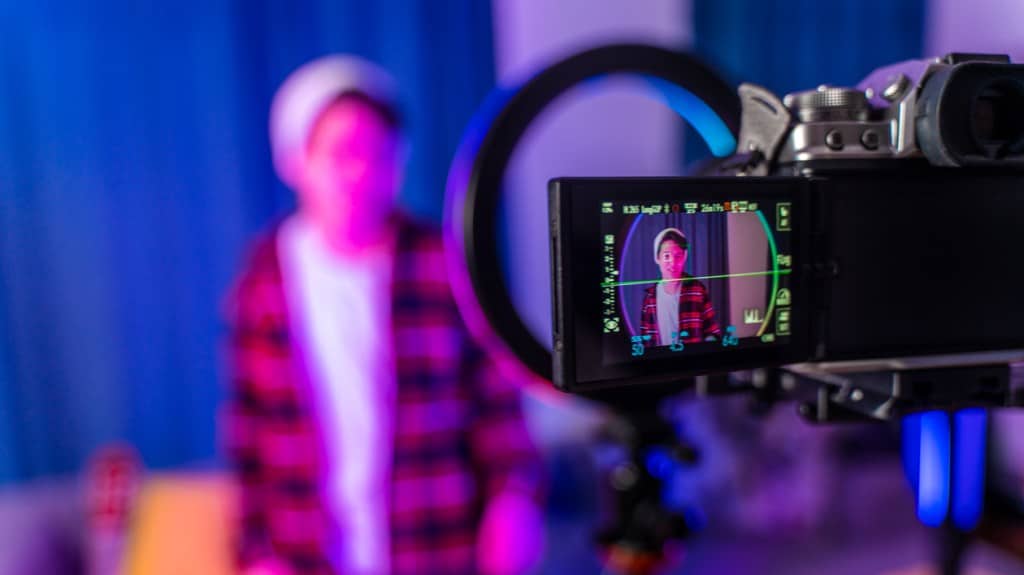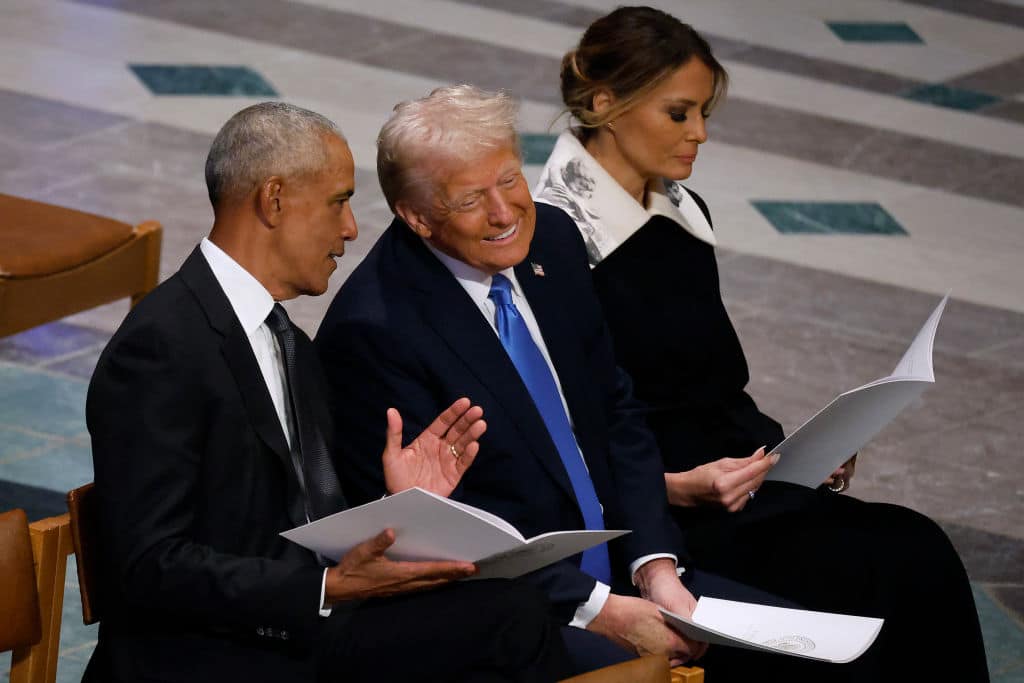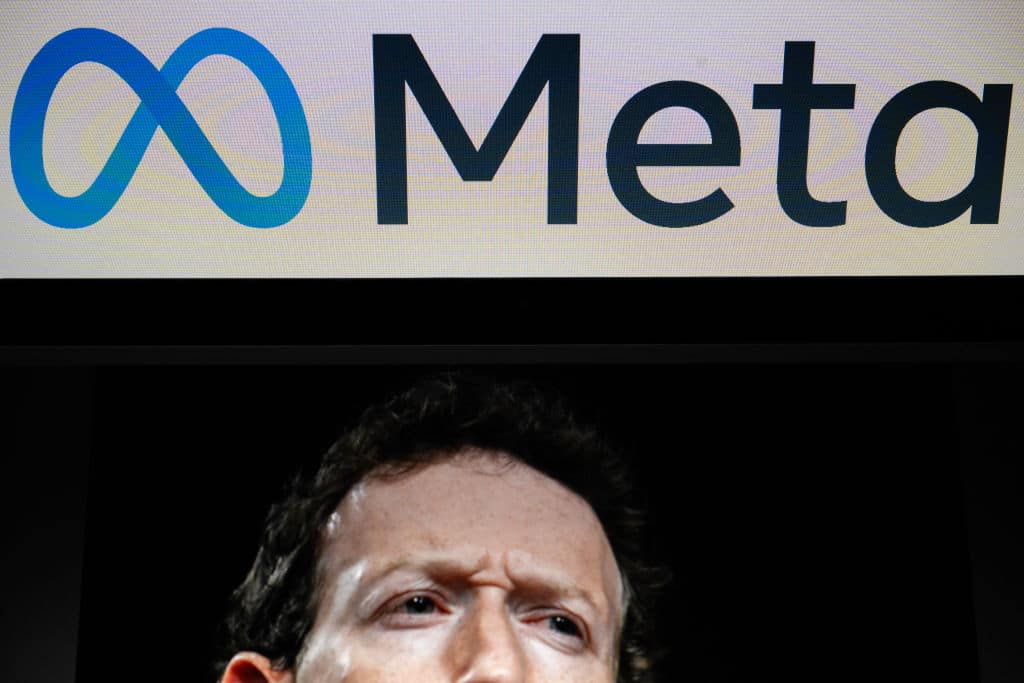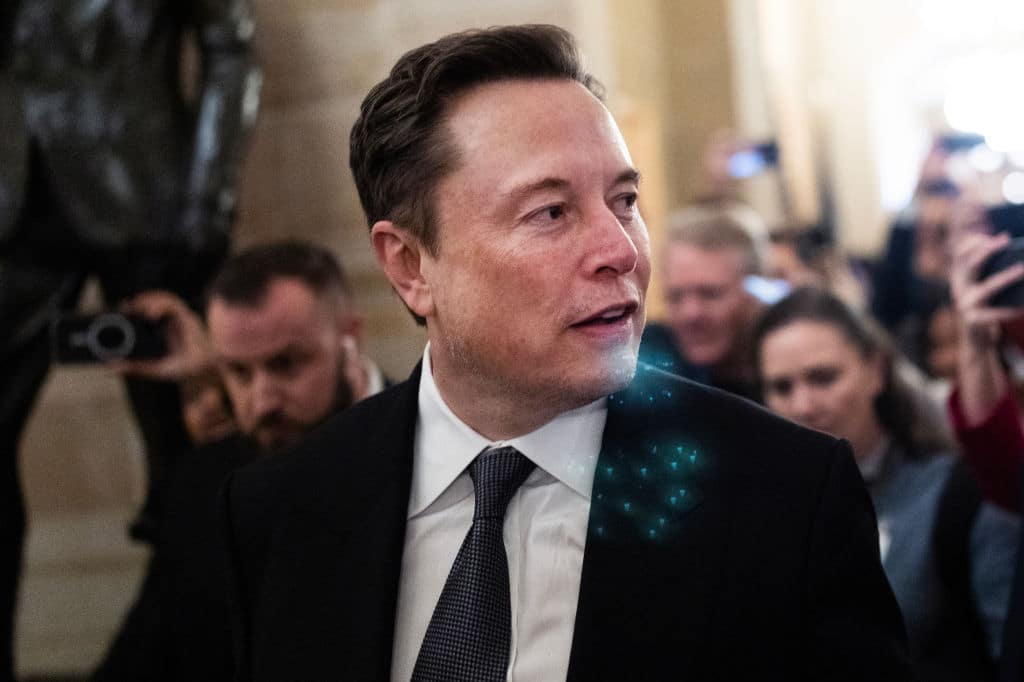social media
Page: 4
According to Morning Consult, 57% of people born roughly between 1995 to 2010 aspire to become influencers and earn a living publishing their lives — or a fictional semblance of their real lives — on platforms such as TikTok, Instagram and YouTube. That means there has never been a greater need for simple solutions to license music.
Making synch licensing simple is key to capturing the potential in today’s creator economy, says Wendy Connell, vp of marketing at music synch startup Soundstripe. “How can we guide people through this complicated process and make it as easy as possible, and make sure that they know that they’re covered, it’s legal, and take care of all the complication for them?” she says.
Soundstripe has business customers, too, and its traditional synch (film, TV and movies) rose 87% in 2024. But personal users — influencers, hobbyists, students, etc. — account for 53% of its customers. With evidence growing that content creation is big business, there’s a huge opportunity for companies like Soundstripe that provide them with services — and the need for affordable music licensing could help grow a U.S. synch revenue market that was worth $411 million in 2023 (a number that includes only label revenue tracked by the RIAA) and probably more in 2024.
Trending on Billboard
The world is awash in content creators — the term for professional, semi-professional and amateur photographers and video makers who flood digital platforms with everything from cooking tips to travel videos to Amazon product recommendations. But making short videos for a living isn’t just an aspiration of the younger generations for whom Mr. Beast is the peak of celebrity and Kim Kardashian is the blueprint for turning fame into wealth. Morning Consult also found that 41% of all adults surveyed would choose the career: Across all age groups, millions of creators already operate at the sub-career level. And a November 2023 report by the Keller Advisory Group found there were 27 million paid creators in the U.S. aged 16 to 54. For a small group of them, being an influencer provides a six-figure annual income, but for most of the 27 million “micro-influencers,” annual income is less than $10,000. Regardless of how much they make, though, influencers are churning out content — much of it requiring music.
This supply of content exists because there is a massive, eager audience for creators’ videos and photos. Young consumers are spending their time on smartphones, not TVs: 60% of American teens spend four or more hours each day on social media on average, and nearly 30% are on social platforms for more than six hours per day. Older age groups also spend time on social media — the 55-64 age group logs two hours per day on average, according to eMarketer — but younger people skew toward short-form videos on TikTok while older consumers bank most of their social time on Facebook.
In the past, TV shows and movies provided a constant source for synch royalties for the use of a sound recording and its underlying musical work. Today, those traditional synch opportunities still exist, but influencers and other content creators are eroding legacy media’s viewing time. In July, YouTube accounted for more than 10% of TV viewing, according to Nielsen, becoming the first streaming platform to surpass the 10% threshold. That was more than Netflix, a TV juggernaut that commanded an 8.4% share, and Amazon Prime, a distant third amongst streaming platforms at 3.4%. All streaming platforms accounted for 41.4% of TV viewing, well ahead of cable (26.7%) and broadcast (20.3%).
But influencers need easy-to-use, affordable licensing options to stay out of legal trouble. Last year, companies such as Marriott, Bang Energy and OFRA Cosmetics were sued by music rights holders for using unlicensed music in influencer marketing. (Sony Music and Marriott ended their lawsuit while Bang Energy lost separate court cases against Sony and UMG in 2022.) While TikTok’s licensing deals allow users to incorporate music into their videos, they stop short of allowing corporations and the influencers they — or third-party firms — hire to use music for commercial purposes. Outside of influencer marketing, there are numerous other instances of companies using music without permission when simple, legal and affordable licensing options exist.
Aside from Soundstripe, platforms such as Epidemic Sound, PremiumBeat, Artlist and, most recently, The Rights provide royalty-free music, typically through a subscription model, that provide a wide range of mostly anonymous production music, though professional musicians and songwriters working under their stage names are largely absent from these platforms. While Soundstripe currently has in-house musicians to build its catalog, Connell says the company is working on bringing in record labels’ catalogs to offer to their customers. That would benefit artists and songwriters whose music isn’t available at Soundstripe and similar platforms and who would otherwise miss out on the rise of influencer culture — and the financial benefits that can come from tapping into it.
HipHopWired Featured Video
CLOSE
Source: Tom Williams / Getty / Elon Musk
Elon Musk announced that his platform X will undergo more changes because he feels “too much negativity” is being pushed on it. Hilariously, he continues to be one of the culprits.
Phony Stark, aka Elon Musk, posted on his fledgling platform that an “algorithm tweak” was coming in response to “too much negativity” on X timelines.
Musk, who reluctantly purchased Twitter in October 2022, said in a post on his X account that he wanted to “maximize unregretted user-seconds. “Keep in mind Mr. Positivity also reinstated accounts of conservative accounts notorious for pushing negativity, like his new buddy President-Elect Donald Trump, who was banned on multiple social network platforms for inciting the January 6 riots at the capitol.
“Algorithm tweak coming soon to promote more informational/entertaining content. We will publish the changes to @XEng Our goal is to maximize unregretted user-seconds. Too much negativity is being pushed that technically grows user time, but not unregretted user time,” Musk wrote.
What made Musk’s announcement hilarious is that not too soon after it, he became one of the people he was trying to squash on X.
In response to a post from Joni Askola, a Finnish PHD candidate, that said, “Elon Musk is rapidly becoming the largest spreader of disinformation in human history, hijacking political debates in the process. The EU must take action!,” In reply to the post Musk wrote “F u retard.”
F u retard
— Elon Musk (@elonmusk) January 6, 2025
https://platform.twitter.com/widgets.js
So much for positivity.
Social Media Roasts Elon Musk
Social media has also criticized Musk for not being able to practice what he preaches on his own platform.
“I understand Elon Musk wants positive posts here now. So I’m positive that Elon Musk is a f***ing idiot,” one user on X wrote.
Another post read, “This would mean something if X wasn’t the home of some of the most racist, homophobic, ignorant trolls and Russian bots on the planet.”
Welp.
The gallery below contains more reactions to Elon Musk’s announcement and his failure to practice what he preaches.
1. This X user is on to something
2. Maybe this post will be pushed due to its positivity
5. Possible jig spotted
6. Well damn
HipHopWired Featured Video
CLOSE
Source: NurPhoto / Getty / Donald Trump / TikTok
TikTok is still facing a potential ban in the United States, but the popular social media platform might have found an unlikely savior in Donald Trump. Some folks can see the jig with this latest move.
In an interesting turn of events, Donald Trump, who has had a wishy-washy position on the matter, is now calling for the Supreme Court to pause the looming ban on the popular social media platform TikTok.
Trump’s take on the matter is in direct contrast to the Biden administration and some Republican, former Trump, and Democratic official’s stance that the Chinese-owned platform poses a “grave” threat to the country’s national security.
If TikTok’s Chinese parent company, ByteDance, doesn’t sell TikTok to an American company, it will be officially banned on January 19, one day before Donald Trump’s inauguration.
Per NBC News:
“President Trump takes no position on the underlying merits of this dispute,” wrote D. John Sauer, Trump’s lawyer who is also the president-elect’s pick for U.S. solicitor general. “Instead, he respectfully requests that the Court consider staying the Act’s deadline for divestment of January 19, 2025, while it considers the merits of this case, thus permitting President Trump’s incoming Administration the opportunity to pursue a political resolution of the questions at issue in the case.”
The US Supreme Court decided to hear the case and fast-tracked the schedule for briefings and oral arguments, but it did not decide whether to consider TikTok’s request to pause the implementation of the ban.
Never Forget, Donald Trump Wanted TikTok Banned
Trump, who famously tried to ban TikTok in 2020 during his first failed presidency, is now claiming he can somehow negotiate a deal to “save” the platform after he met with the company’s CEO, Shou Zi Chew, claiming he now has a “warm spot” for the platform.
“President Trump alone possesses the consummate dealmaking expertise, the electoral mandate, and the political will to negotiate a resolution to save the platform while addressing the national security concerns expressed by the Government—concerns which President Trump himself has acknowledged,” Sauer notes.
While the news of TikTok’s potential saving is making some people happy, there are many who see the move as a political one.
“Donald Trump’s reversal on the TikTok ban is the most billionaire thing ever. The president-elect, himself a billionaire, changed his mind because his billionaire donor Larry Ellison asked him to. Not good for democracy!” read one post on X, formally Twitter.
Another post on X read, “Hold the fuck on. The same Donald Trump who is threatening to “take back the Panama Canal” from PANAMA because it’s being “controlled by” the Chinese, has asked the Supreme Court to pause the law which would ban TikTok here unless it’s sold, thereby allowing the app to continue to be controlled by… the Chinese? Do I have that just about right?”
We can also see the jig.
You can see more reactions in the gallery below.
1. This video proves why Donald Trump isn’t the brightest person on the planet
2. Imperial fluffing
3. We guess
4. LOL, of course he doesn’t
HipHopWired Featured Video
CLOSE
Source: The Washington Post / Getty
Donald Trump has been named TIME Magazine’s Person of The Year for the second time, and social media users displeased at the choice made their opinions known.
On Thursday (December 12), TIME Magazine announced that President-elect Donald Trump would be its Person of The Year for the second time. He had graced the cover of the publication after winning the presidential election back in 2016. To commemorate the occasion, Trump was at the New York Stock Exchange in lower Manhattan to ring the opening bell as his family stood nearby. Chants of “U-S-A!!” could be heard during the moment. “He has reshaped the American electorate, activating young male voters who propelled him to a decisive victory that saw him win the popular vote for the first time and turn every swing state red,” the outlet wrote in the issue.
“His 2024 win is history-making in multiple ways: he will be the oldest President in U.S. history, and he was convicted earlier this year by a New York jury of 34 counts of fraud, making him the first convicted felon to be elected President.”
Time’s editor-in-chief Sam Jacobs praised Trump in the magazine, writing: “On the cusp of his second presidency, all of us — from his most fanatical supporters to his most fervent critics — are living in the Age of Trump.” Trump himself has unsurprisingly had a turbulent relationship with TIME Magazine – while he praised TIME as a “very important” publication and said being named person of the year in 2016 was a “tremendous honor”. But he would sour on the outlet’s description of him being “president of the divided states of America.” He also blasted the magazine in 2011 for leaving him off a list of influential people, claiming it had “lost all credibility”. In 2013, upset over another snub, he stated that TIME would soon go out of business. He’s also criticized other Person of The Year choices, including pop superstar Taylor Swift who nabbed the honor last year.
The news of Trump’s becoming TIME’s Person of The Year was met with disbelief by many, including those on social media. Democratic presidential nominee and current Vice President Kamala Harris was on the shortlist for the honor, as well as Catherine, Princess of Wales and tech billionaire Elon Musk, who is a close advisor to Trump and poised to be head of the Department of Government Efficiency.

HipHopWired Featured Video
CLOSE
Source: Jeff Swensen / Getty / Luigi Mangione
Following the arrest of Luigi Mangione, the alleged killer of UnitedHealthcare CEO Brian Thompson, things have been quite interesting on social media.
After it was confirmed by law enforcement that Luigi Mangione was a suspect and subsequently arrested in connection with the targeted killing of UnitedHealthcare CEO Brian Thompson, Mangione’s social media accounts became a hotbed for attention.
Like most people his age, the 26-year-old was active on social media platforms like X, Facebook, Instagram, Goodreads, and others. Social media detectives didn’t take long to find his accounts.
At the time of this writing, his accounts on Facebook and Instgram were taken down, his Goodreads account is private,e and his X account is hilariously still active, which should tell you everything about the Elon Musk-owned platform and just how poorly run it is.
Since being pinched (arrested for those who are not hip), Mangione has gained cult-like status among those who feel he is a “hero” and has even gained 100K followers on X.
The Hypocrisy Is Loud On Social Media
There has even been a debate sparking with those on the right, yes, the same people who propped up Kyle Rittenhouse and now recently acquitted Daniel Penny, claiming that leftists are celebrating Mangione allegedly killing Thompson.
One post on X spoke on the hypocrisy going on, saying, “Conservatives condemning Luigi Mangione and calling leftists crazy for supporting him, yet they turned Kyle Rittenhouse into a celebrity after he drove to a BLM protest with an AR-15 and killed 2 people…the math isn’t matching.”
Mangione’s posts on social media have also gone viral, like a post about one of his fish being sucked into a filter and another one about his last log for Goodreads being Dr. Seuss’ The Lorax.
We are truly living in some strange times.
We don’t know if this man did the crime, but if he did, we don’t see him as no John Q either, even though we agree the United States healthcare system and insurance companies are a hot mess.
You can see more reactions in the gallery below.
1. Y’all are very unserious
3. Interesting observation
4. Interesting
5. Of course there are jokes
6. Britney Spears gets him hyped
HipHopWired Featured Video
CLOSE
Source: The Washington Post / Getty
Donald Trump’s first post-election network interview with NBC News’ Kristin Welker was widely trashed for his numerous false claims and Welker’s apparent lack of pushback on his answers.
The first network interview for President-elect Donald Trump, which was recorded to be aired on NBC’s Meet The Press on Sunday (December 8), was derided by observers who tuned in, noting that he repeated many of the false claims that were a hallmark of his campaign with re-election. Trump was interviewed by the news program’s host, Kristin Welker, being combative with her as he has been in the past, reacting to her questioning of his proposed policies in his return to the White House. “You have such potential. If you could be just non-biased… you hurt yourself so badly,” he remarked as Welker’s frustration could be seen.
Trump maintains his composure as “Meet the Press” host Kristen Welker grows frustrated.
“You have such potential. If you could be just non-biased… you hurt yourself so badly.” pic.twitter.com/YYQmniPH4h
— Julianna Frieman (@JuliannaFrieman) December 8, 2024
Trump made false claims again about migrants in the United States, misusing an Immigration and Customs Enforcement statistic to say 13,000 immigrants who had committed murder were “released into our country over the last three years.” When asked about his proposal to remove so many undocumented immigrants, he replied: “Well, I think you have to do it, and it’s a hard – it’s a very tough thing to do,” Trump said. “But you have to have rules, regulations, laws. They came in illegally. You know the people that have been treated very unfairly are the people that have been on line for ten years to come into the country. And we’re going to make it very easy for people to come in in terms of they have to pass the test.” He also lied about the United States being the only nation granting birthright citizenship – 30 other nations also do so.
Trump also claimed that he “was able to get hundreds of billions of dollars put into NATO just by a tough attitude.” The false claim refers to NATO countries agreeing to put more money into boosting their military forces but The New York Times noted that the agreement was in place since 2014. Trump also falsely claimed that “just prior to Covid coming in, I had polls that were the highest.” In truth, at that point in 2020 he had a 48% approval rating, placing him lower than all but three presidents dating back to Harry S. Truman.
HipHopWired Featured Video
CLOSE
TV personality Dr. Oz is Donald Trump’s choice to lead the Centers for Medicare and Medicaid Services, leaving social media users horrified.
On Tuesday (November 19), President-Elect Donald Trump announced that he was selecting Dr. Mehmet Oz, the former celebrity heart surgeon who became a television personality before getting into politics. The move garnered a slew of responses from social media onlookers who were appalled at the choice, which aligns with Trump’s prior picks of television personalities to fill the cabinet for his incoming presidential administration.
In a statement, Trump wrote that Oz would “work closely with Robert F. Kennedy Jr. to take on the illness industrial complex, and all the horrible chronic diseases left in its wake.”
Oz’s reputation grew after being featured on media mogul Oprah Winfrey’s long-running talk show numerous times, which led to a spinoff, The Dr. Oz Show, in 2009. That show lasted for 13 seasons, earning him an Emmy Award.
He’s also written several books, and while he stopped performing surgeries in 2018, he is still licensed as a doctor in Pennsylvania. He lost to the current Democratic Senator, John Fetterman, in that state in 2022. Fetterman claimed in a post on X, formerly Twitter, that he’d support Oz’s nomination: “If Dr. Oz is about protecting and preserving Medicare and Medicaid, I’m voting for the dude.”
Oz and Trump have a distinct bond, with Oz being on the President’s Council on Sports, Fitness, and Nutrition in Trump’s first term. The response on social media to the choice of Dr. Oz left many concerned. One user on X, formerly Twitter, wrote, “America is once again the laughingstock of the world.”
Others pointed to his extensive history of his ties to companies pushing false medical cures and of his push to privatize Medicare. That stance is aligned with the Republican Party’s previously expressed aims of gutting Medicare and Medicaid. More pointed out how he was promoting hydroxychloroquine as a drug to combat COVID-19 during the early days of the pandemic, which was proven false.
“CMS is a critical agency & we need serious leaders to protect Americans’ health care and bring down costs—not TV hosts whose main qualification is their loyalty to Trump,” wrote former Senator Patty Murray of Washington in a post on X.
Dr. Oz has zero qualifications, pushes alarming pseudoscience, & holds extreme anti-abortion views.
CMS is a critical agency & we need serious leaders to protect Americans’ health care and bring down costs—not TV hosts whose main qualification is their loyalty to Trump. https://t.co/QgbaIHV9AJ
— Senator Patty Murray (@PattyMurray) November 20, 2024
https://platform.twitter.com/widgets.js
—
Photo: Getty

HipHopWired Featured Video
Source: Anna Barclay / Getty / Bluesky
Hey Elon, you hear those footsteps? That’s Bluesky coming for your spot.
Spotted on Engadget, Bluesky has officially crossed 20 million as its growth shows no signs of slowing down. This latest milestone for X, formerly Twitter’s direct competitor, comes on the heels of the platform crossing 15 million users less than a week ago and tripling its user base in only three months.
While boasting 20 million users is impressive, Bluesky is still far behind X and Meta’s Threads platforms. However, if Bluesky can maintain its popularity and the mass eXodus continues, there is no reason it can’t be up there with the big boys.
Per Engadget:
Though it’s still far smaller than its rivals Threads and X, Bluesky’s current momentum is notable. The app has had several days over the last week where it added a million new users in a single 24-hour period. That’s similar to the growth rate of Threads, which has been getting a million new sign-ups a day for “going on three months,” according to an update last week from Meta’s Adam Mosseri. Threads reached 275 million monthly users earlier this month and has added at least 15 million since the start of November.
Bluesky Tops Both Apple and Google’s App Stores
Bluesky still has some ground to make up, but all signs point upward for the social media platform. It’s been the number one app in Apple’s App Store for the last six days and the top non-gaming app in the Google Play Store for the previous four days. Threads is holding down the second spot in the App Store.
Meanwhile, X continues to bleed subscribers following Musk’s ridiculous changes to the platform, and many users are complaining about how much Trump/right-wing propaganda has taken over timelines since Musk got in bed with sweet potato Hitler.
Celebrities like Gabrielle Union, Stephen King, Mark Hammill, and more have also said goodbye to X for Bluesky’s greener pastures.
Journalists and other organizations also have left X in large numbers for Bluesky.
Consider us on board for Elon Musk taking an L.

 State Champ Radio
State Champ Radio 








